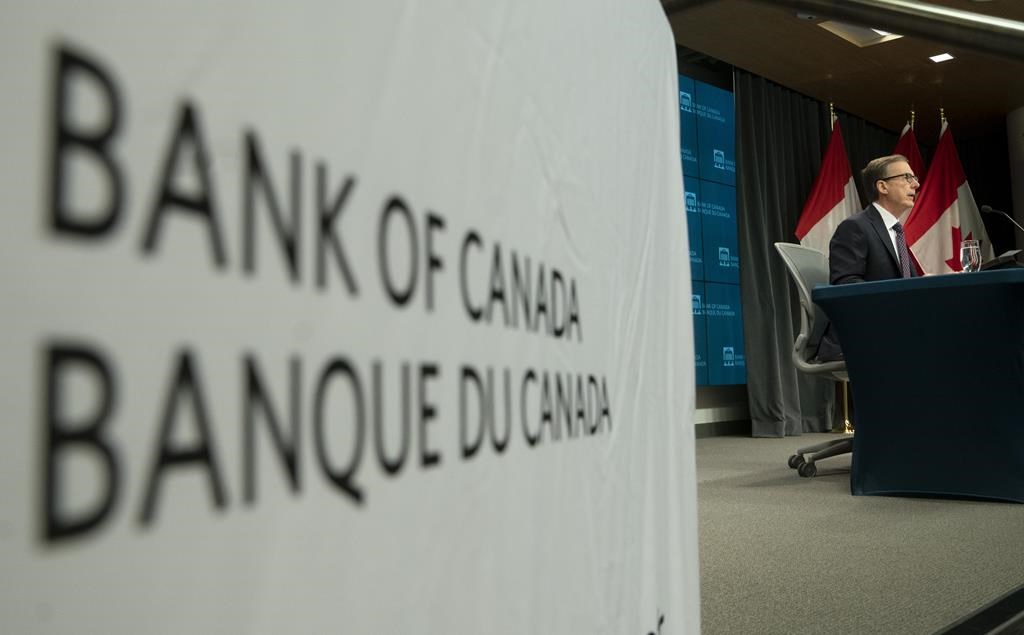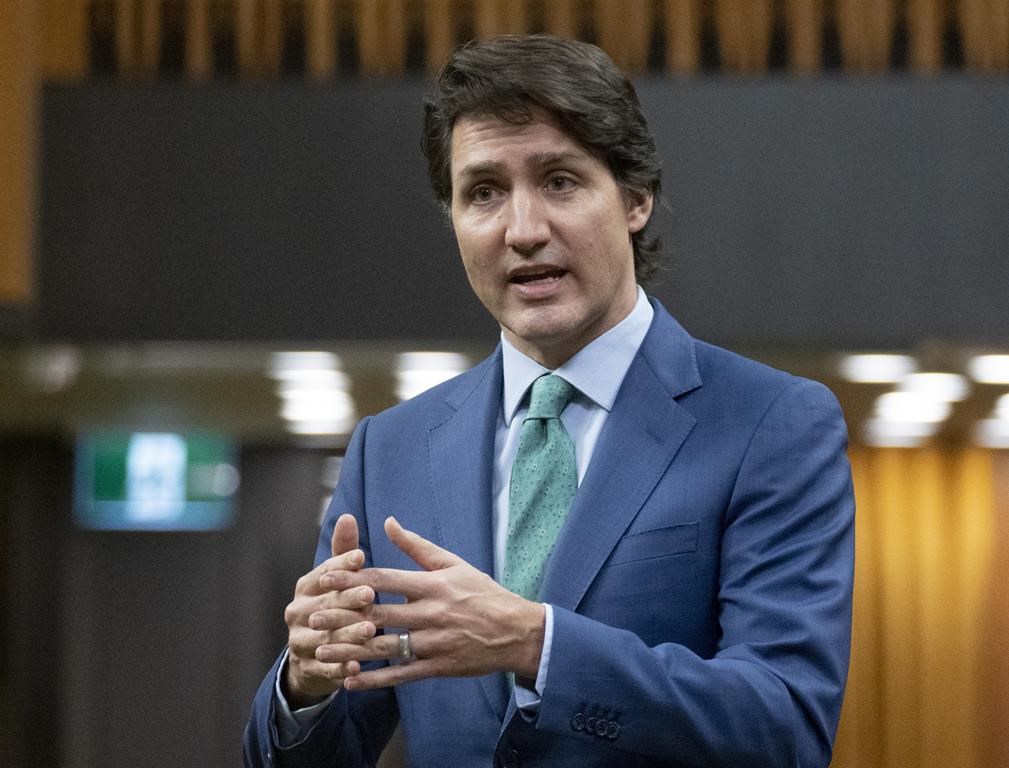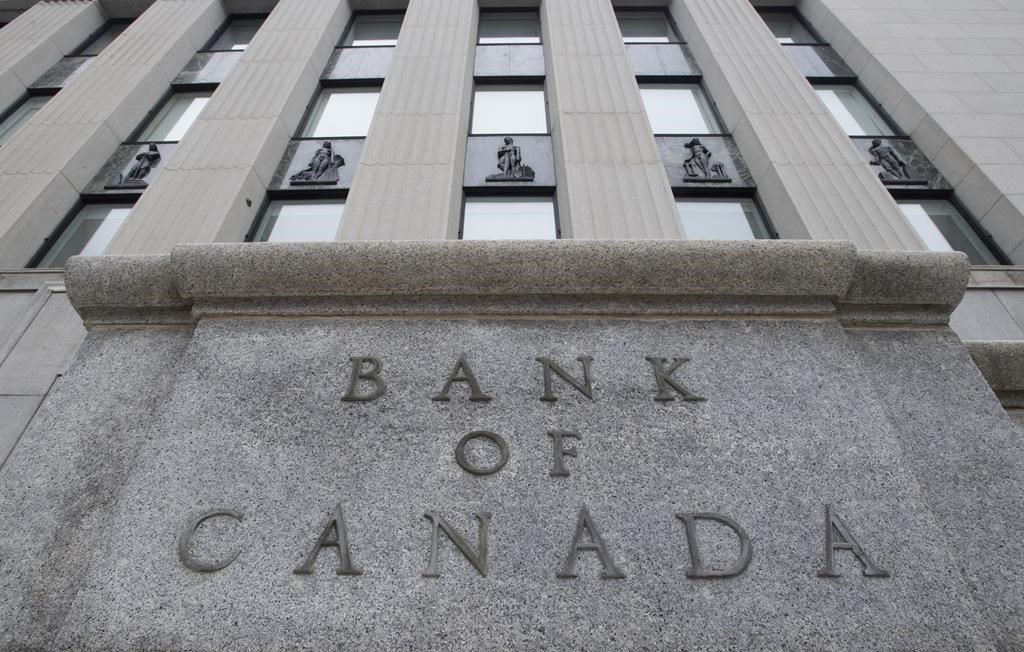This content is restricted to subscribers

The views, opinions and positions expressed by columnists and contributors are the author’s alone. They do not inherently or expressly reflect the views, opinions and/or positions of our publication.

This content is restricted to subscribers
The views, opinions and positions expressed by columnists and contributors are the author’s alone. They do not inherently or expressly reflect the views, opinions and/or positions of our publication.

Become a subscriber today!
Register
Become a subscriber today!
Register
This content is restricted to subscribers
The views, opinions and positions expressed by columnists and contributors are the author’s alone. They do not inherently or expressly reflect the views, opinions and/or positions of our publication.

Pierre Poilievre is the acknowledged frontrunner in the Conservative Party leadership campaign. The longtime MP and former cabinet minister is favoured by 50-55 percent of party supporters in most major opinion polls. The gap between Poilievre and his closest rival, former federal PC leader and former Quebec Liberal premier Jean Charest, is roughly 34-40 points on average.
These numbers will undoubtedly bounce around before the Sept. 10 vote. It’s hard for a leadership candidate in any political party to maintain this type of momentum and enthusiasm for an extended period of time.
One polling firm, Abacus Data, recently suggested the margin between Poilievre and Charest slipped from 28 percent in early May to 21 percent on May 25. While the overall gap seems rather low in the face of existing data from other companies, the apparent shift in momentum on either a temporary or permanent basis isn’t completely illogical.
Regardless, Poilievre’s leadership campaign is and remains highly successful. Putting the numbers aside, an obvious indicator of this is the way his critics and opponents have predictably painted his policies, ideas and opinions.
Charest suggested in April that Poilievre should be “disqualified” from the leadership race for supporting the Freedom Convoy, and criticized him for supporting “an illegal blockade” during the May 5 debate. At the May 25 debate, he went as far to claim that Conservatives don’t want a leader “to go sending signals about conspiracy theories, who goes off into theories about the Bank of Canada or bitcoin.”
Ed Fast, the co-chair of Charest’s leadership campaign, abruptly resigned as Conservative finance critic on May 18. The reason? When he spoke out against Poilievre’s suggestion that he would fire Bank of Canada Governor Tiff Macklem, he claimed that several caucus colleagues tried to mute him. “Some of the MPs who tried to muzzle me don’t even agree with Pierre’s policies themselves,” he wrote in an email distributed by the campaign, “But still, they wanted me to keep my mouth shut. I refused.”
A former Bank of Canada governor did go after Poilievre. When the leadership candidate called the central bank “financially illiterate,” David Dodge called the statement “bullshit” during a May 8 interview with CTV Question period host Evan Solomon. “I’m very insulted by that,” he continued, claiming the Bank of Canada “understands what’s going on, they made a judgment call, which I think was 100 percent right.”
Leslyn Lewis, also a leadership candidate, suggested that Poilievre “did not even speak up” about the Freedom Convoy “until it was convenient for you.” Another leadership candidate, Patrick Brown, critiqued Poilievre’s interest in bitcoin and cryptocurrency by calling it “magic internet money.” And there’s been a litany of political commentators, columnists, opinion makers and average Canadians speaking out against just about everything Poilievre says, does and thinks.
Has any of this bothered Poilievre? Not in the slightest. He’s successfully pushed back in each and every instance.
Charest was bombed for his refusal to discuss his role as a consultant with Huawei Technologies, spendthrift nature as Quebec Premier and “repeating a bunch of Trudeau rhetoric on our hard-working truckers,” for instance. Brown was blasted for his flip-flop on the carbon tax, “lying in his attacks on the Harper government” and the “little coalition” he’s formed with Charest. There have also been sold retorts against Dodge, Fast, Lewis and other critics and opponents.
Part of Poilievre’s long-standing skill set has been an ability to make strong statements and back them up with facts, ideas and memorable quips. He’s passionate and combative during tete-a-tete encounters, and will defend his ideas and policy positions to the bitter end.
“My critics say I’m a bulldog,” he tweeted on Sept. 17, 2021. “They’re right.”
Conservative party members are largely pleased with Poilievre’s tone, tenor and tactics. They’ve enjoyed his speeches, and attended his rallies in record numbers. They respect his strategic mindset, and appreciate his thoughtful, intelligent ideas. They agree with his small “c” conservative values on lower taxes, smaller government and more rights and freedoms. They respect the fact that he’s discussing outside-the-box issues like affordable housing, cryptocurrency and making the Bank of Canada and its current Governor more accountable – or else.
Most importantly, they’re not paying a great deal of attention to the fear-mongering coming from his critics and opponents. Party supporters largely don’t see Poilievre as being extreme or populist in nature, but rather a person of conservative convictions who is willing to engage in open-minded discussions.
“The reason Pierre Poilievre is the favourite to win the Conservative party leadership should be no surprise to anyone: it is because he is speaking to people desperate for a voice,” Macdonald-Laurier Institute director Aaron Wudrick wrote in the National Post on May 27. “His critics cannot have it both ways. They cannot complain about the increasing polarization of society while at the same time insisting a substantial chunk of people on the ‘wrong’ side of various debates should have zero voice in those debates.”
Wudrick is right. If Poilievre’s critics and opponents continue to utilize this foolhardy strategy, the momentum for his already-successful leadership campaign will continue to flourish during the summer and fall. That’s exactly what the Conservative frontrunner is counting on.
Michael Taube, a long-time newspaper columnist and political commentator, was a speechwriter for former Canadian prime minister Stephen Harper.
The views, opinions and positions expressed by columnists and contributors are the author’s alone. They do not inherently or expressly reflect the views, opinions and/or positions of our publication.

This content is restricted to subscribers
The views, opinions and positions expressed by columnists and contributors are the author’s alone. They do not inherently or expressly reflect the views, opinions and/or positions of our publication.

This content is restricted to subscribers
The views, opinions and positions expressed by columnists and contributors are the author’s alone. They do not inherently or expressly reflect the views, opinions and/or positions of our publication.

Become a subscriber today!
Register
I’m not surprised that inflation has become an issue in this election, given the way that certain parties have been making political hay out of the temporary spike in the numbers that have been reported over the past few months. I’m also not surprised that the “debate” over it – if you can call it that – has been mind-numbingly stupid, driven by simplistic narratives that rely on lighting one’s hair on fire about the top-line number without bothering to actually read what’s causing it, and most of the media outlets that people will readily consume are too busy shouting that “the cost of everything is going up!” without unpacking what it means.
The first thing we need to understand is that governments have very little control over monetary policy. They set the Bank of Canada’s target every five years, and the Bank operates at arm’s length from government, and had a hard-fought battle to ensure its institutional independence back in 1961. This is important, particularly in light of the discussion around inflation that’s happening right now. Since 1991, the Bank’s mandate has been to target inflation and to keep it between one and three percent, averaging two percent annualized, and they’ve been enormously successful at it. So much so that most people these days don’t remember the days of high inflation that led to double-digit interest rates to control it.
Why this has become politicized lately is because the Conservatives, and Pierre Poilievre in particular, have decided they want to make inflation an issue. Because the Bank reduced its rates to near-zero at the start of the pandemic to help keep the economy going during the financial crisis that COVID wrought, and engaged in quantitative easing to keep liquidity in the economy, this turned into memes about the Bank “printing money” that was being used to buy government bonds. Or as Poilievre likes to call it, printing money to buy the government’s debt, and he has managed to convince scores of people online that he’s a monetary policy genius, and that this QE program is going to turn into runaway inflation and that we will soon turn into Venezuela – none of which is actually true. More concerning is his repeated insinuation that the Bank is in cahoots with the federal government, politicizing the arm’s-length body in what should be alarming, yet is being met with a shrug by most media because they don’t care to understand what’s at stake.
Given that the Conservatives have been banging this particular drum the loudest, and warning that inflation is one of the reasons why they need to form government as soon as possible, you’d think that they have policies to address it – but they don’t. They talk in their platform about ways they’ll lower the cost of living, and will handwave about competition in a country mired in oligopolies, but don’t actually say anything about how to address inflation – the words “monetary policy” don’t appear in the platform, nor does “Bank of Canada” appear anywhere. And for a party that claims to be so worried about inflation, many of their policies, including their much-ballyhooed “GST holiday” will actually increase inflation rather than combat it, so way to go there.
For the record, the NDP platform also doesn’t mention monetary policy, but does make the bizarre claim that they will “change the mandate of the Bank of Canada to focus on contributing to net zero.”
“We will support Canada’s net-zero target by reviewing financial legislation, such as the Bank of Canada Act, the Export Development Canada Act, and the Canada Pension Plan Investment Board Act, to ensure federal financial levers and Crown corporations are aligned with the goal of net-zero,” the document reads, and the economists I’ve reached out to are stumped as to what that could possibly mean.
If O’Toole is so worried about inflation, then there are two possibilities – one is that he doesn’t believe that the Bank of Canada is doing their job in controlling it, and should just say so and declare his plans to replace the Governing Council; or he’s saying that their mandate needs to be changed, and should say what he thinks they should be targeting. Given that he’s so concerned about rising prices, maybe he thinks they should be targeting zero inflation or even deflation (which will have consequences for economic growth). But when pressed on the campaign trail on Thursday, he stated that the current policy of targeting inflation at two percent is “one we should continue.” In other words, the dishonesty of this attack becomes clearer.
So, if we’re going to try and make inflation an election issue, then we should be prepared to discuss monetary policy – especially since the Bank’s mandate comes up for renewal at the end of this year. They’ve been doing research to look at what other inflation targeting measures are out there, such as targeting full employment rather than two percent inflation, or some kind of dual mandate, and what the repercussions might be of doing so. But whoever is in government at the end of the year will have to decide, so it’s a discussion worth having. Nevertheless, it hasn’t gone well – media outlets are more interested in facile narratives, and when Justin Trudeau was asked by Bloomberg about this very question, his meandering answer was truncated to sound like he said “I don’t think about monetary policy” when he was outlining the different affordability programs his government was undertaking, and that truncated answer was being used to fuel a narrative that he is being flip about the issue, along with a bunch of Conservative shitposts.
This is a serious issue. We should have serious parties having serious discussions about it, but we don’t. Instead we have cheap headlines, conspiracy theories, and a Canadian public who is being misled because nobody will bother to fact-check what is actually going on. Monetary policy matters, and if we’re going to have parties make fools of themselves over it in public, or mislead people as to the situation, then the public should at least be able to comprehend that it’s what they’re doing, rather than this particular dog and pony show that we’re being subjected to.
The views, opinions and positions expressed by columnists and contributors are the author’s alone. They do not inherently or expressly reflect the views, opinions and/or positions of our publication.

This content is restricted to subscribers
The views, opinions and positions expressed by columnists and contributors are the author’s alone. They do not inherently or expressly reflect the views, opinions and/or positions of our publication.